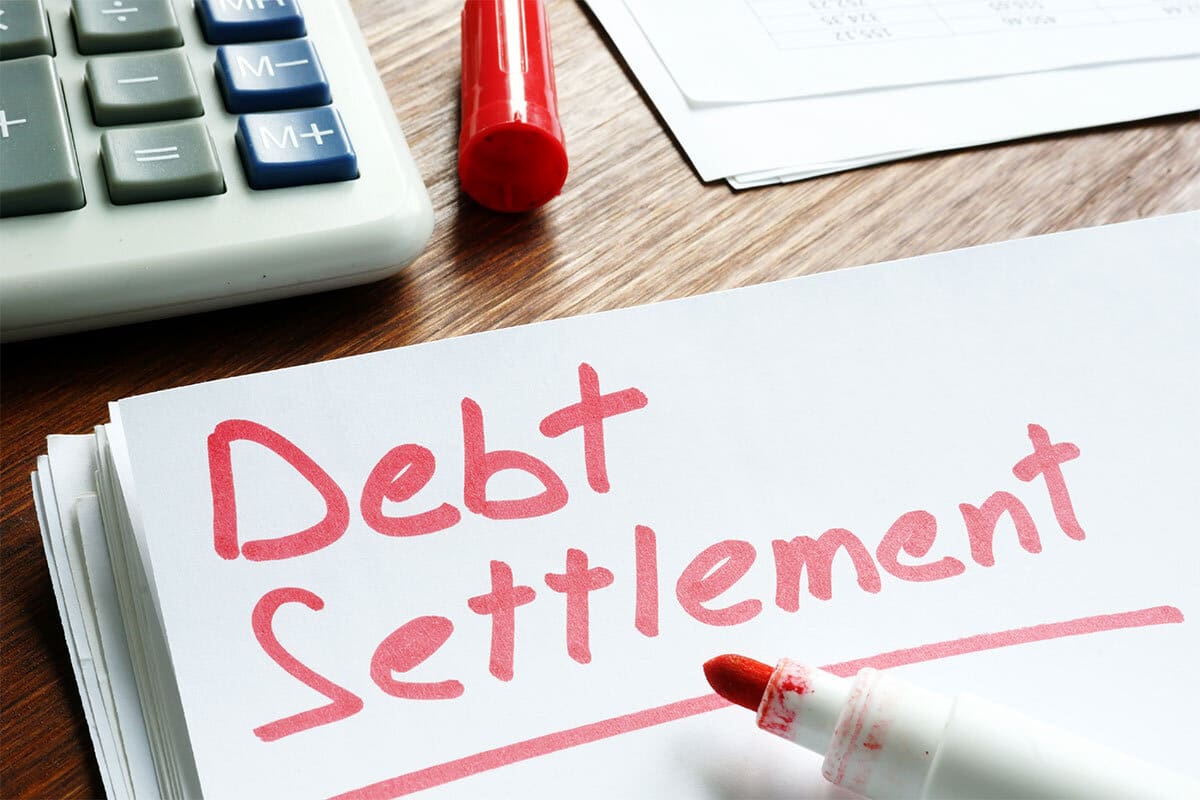Asking “Is debt settlement right for me?” might not be the right question. There are some considerations to keep in mind when you seek debt relief.
For anyone struggling to pay their credit card debt and bills, the stress can be overwhelming. In many cases, the debt continues to climb, despite making payments despite making payments to credit card companies, because expenses keep rising.
The strain on your bank account can be devastating. Not to mention the impact on your credit. Studies show Canadians are increasingly worried about their financial situation. Many aren’t sure how they will get out of it.
Options for those struggling with debt
One solution for those with a significant amount of debt in several places is to consider a debt settlement plan. When you settle your debt, a settlement plan allows you to work with a representative who negotiates a settlement to get you out of debt as fast as possible.
Debt settlement is different than debt consolidation, credit counselling, a consumer proposal or even bankruptcy. They serve different needs. In some cases, you may contact a representative to start the debt settlement process, and they may recommend another option for you as described above.
Debt settlement representatives can help you negotiate a lower balance on your credit card, a line of credit or anywhere you owe money, too. Debt settlement is a way to get out of debt and those choosing it should weigh their options carefully.
Getting started
How it works
Debt settlement is a process where you hire a representative to talk to your creditors about lowering your overall debt and your overdue bills. According to the Financial Consumer Agency of Canada (FCAC), the company negotiates with your creditors by offering them a lump sum of money to eliminate your debt.
This amount of money is often lower than your total debt. If your creditors agree to the offer, you must provide the lump sum to your debt settlement company or make monthly payments until it’s paid off. The company then pays your creditors. They make money by charging you a fee for their service.
How to choose
When you choose debt settlement as an option, your first step is to contact an agency that can work on your behalf. According to the FCAC, some companies offering to help to pay off debt or repair credit are misleading consumers. Choose the company you are going to use carefully. FCAC says there are many different names for the practice of debt settlement, including:
- Consolidation
- Arbitration
- Negotiation
- Relief
- Pooling
- Reduction
- Elimination
Once you find one with the products and services you like, research them thoroughly. Read past reviews and check with the Better Business Bureau, or the Federal, Provincial or Territorial offices. To make sure there are no major complaints against the company. Also, review the contract carefully to make sure you understand the terms.
Other warning signs about debt settlement companies include the following:
- They claim they can reduce your debt by more than 50%
- Large, upfront fees
- If you work with them, there will be no adverse effect on your credit report
- Claim that their program is approved by the government
- They say they will stop collection calls
Debt Settlement Pros and Cons
Why debt settlement works
The benefit of debt settlement is that it will allow you to move towards getting your finances in order. By paying down debt, you will be able to save more money and build your credit. Thankfully, calls from creditors may stop.
As well, research shows getting your finances in order is good for your health too. According to the Financial Planning Standards Council (FPSC), everything from anxiety, insomnia, and stress are all alleviated when we are financially stable.
An effective debt settlement program can typically reduce your total principal and get you out of debt in 12 – 36 months. For people who have been dealing with debt for years, the stress can be overwhelming. Just knowing you can’t afford to make your payments can be a huge weight month after month. A Debt Settlement program can not only save a lot of time but may relieve years of stress.
Lastly, avoiding bankruptcy is a big plus. Going bankrupt is a serious financial event, which can destroy your financial credit history for several years. Bankruptcy should only be considered as a last resort. If you choose this option giving up all non-exempt assets will be required.
Why Debt Settlement may not work
There is a negative side to using a debt settlement program according to the FCAC. First, creditors are in no way obligated to work with the debt settlement company you have chosen. They may decide to still demand the payments from you and continue to charge interest on the outstanding balance.
The FCAC also warns that some debt settlement companies intentionally delay making payments to your creditors. They do this in the hopes of getting better results in negotiations to reduce your debts. While this is happening this will, again, hurt your credit score because it can make it seem like you’re less able to repay your debts. They recommend when working with a debt settlement agency, to always ask for receipts for any payments you make.
Try first to pay it off on your own
Before you reach out, try to pay the debt off on your own. Doing this will save you fees and extra costs and may help improve your credit rating sooner. You can use the avalanche or snowball method to get the debt paid down quickly.
The debt snowball works by paying the smallest loan off first and working up to the bigger loans. The avalanche method is when you start with the highest interest debt and work your way down while making minimum payments on all your other debt obligations.
You can also use credit counselling services. The province of Ontario has a list of some.
- The Ontario Association of Credit Counselling Services
- Credit Counselling Canada
- The Canadian Association of Insolvency and Restructuring Professionals (CAIRP)
Credit counselling services are different than debt settlement services. Debt settlement will charge you a fee to help you negotiate a plan to repay your debts. Credit counselling services are often not-for-profit organizations. Consider all options.
Debt settlement companies are great for debt settlement negotiation. They are not there to coach you in your future spending. Take some time to get more financially literate, there are some great resources online. ABC Life Literacy is a good place to start.
How to move forward
Staying out of debt
While working with a debt settlement company, the number one thing to remember is to not spend money on anything you don’t need. This is not the time to buy new clothes, take a vacation, or upgrade your car. Even when the company has done its job and your finances are back in order, focus more on saving than spending.
Check your credit reports and score to see how much damage your years of late payment or nonpayment have hurt you. The two central credit agencies in Canada are Transunion and Equifax. While credit scores fall between 300 – 900.
The higher the score, the more you are considered creditworthy by lenders. According to TransUnion, the magic number is around 650.
Something to consider about your debt
The level of household debt that Canadians are carrying continues to sit near a record high. According to Statistics Canada, in March 2018, the average Canadian owes $1.70 for every dollar of income after taxes. Compare that to 20 years ago when every Canadian owned $1.00 for every dollar earned after taxes.
With economists and forecasters predicting higher interest rates soon, the cost of debt management is increasing. Those sitting on large amounts of unsecured debt may be worried about how they will service it.
Are you still asking “Is debt settlement right for me?” Sticking to a plan can have your debt eliminated in good time. If you need professional assistance, go to our online debt relief form to learn more about debt solutions and find out if it is the right option for you!
Related to: Is debt settlement right for me?








